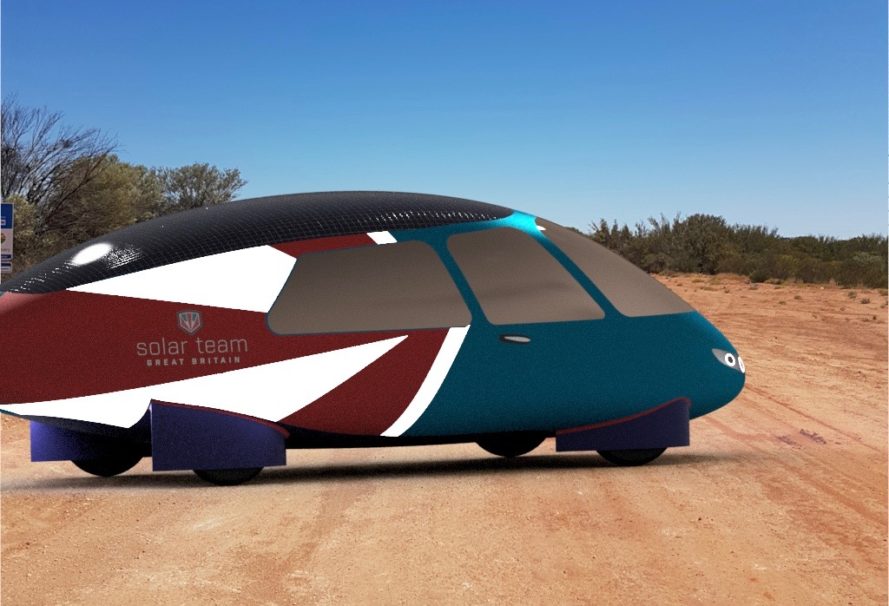Solar Team Great Britain has created the UK’s first family-sized solar-powered car. The newly formed team has launched a Kickstarter campaign to help them build what it hopes will win the title as the world’s fastest solar-powered car at the Bridgestone World Solar Challenge in Australia, later this year.


The challenge covers 3,022 km from Darwin to Adelaide and is labeled as the world’s toughest and longest competition for solar cars. Solar Team Great Britain is hoping to raise at least $25,000 via the Kickstarter campaign, which will help cover part of the costs to build the unique solar-powered vehicle. While the Kickstarter campaign will only raise about five percent of the funds the team needs, the campaign is also being run to raise public awareness of both the race and the need for more clean transportation. The team is also backed by over a dozen sponsors, which will help raise the additional money required to bring the four-passenger vehicle to life.
“We’ve been keen since the project’s inception to get more people on board with its goals. While only forming a small part of the total we need, we felt this could help highlight the work being done and get the public backing and awareness for solar cars… and joins initiatives like working with schools.”
At the race in October, the team will compete in the Cruiser Class category, where the winner must balance not just speed but practicality and energy efficiency. In the 2013 race, a four-seater family car traveled the route with an external energy consumption of only 64 kWh. To compare, a typical family car traveling the same route would have an energy consumption of approximately 5,000 kWh.























